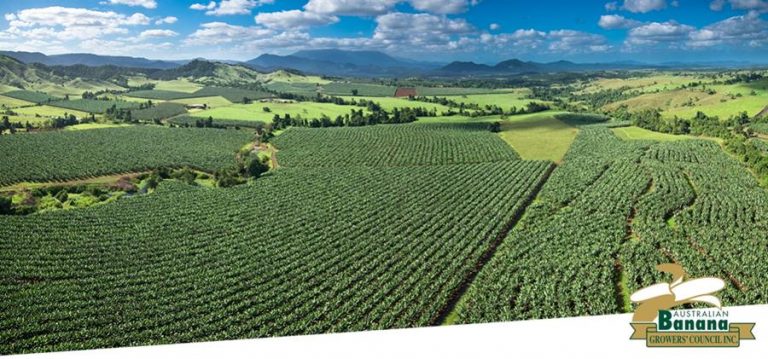
Content
Directors’ quarterly board meeting
Mandatory health management plans
New reef extension officer sought
Banana scholarships
Banana winter chill poster
Board meets via Zoom
ABGC directors held their quarterly board meeting this week, connecting via video conferencing for the first time, due to the restrictions of COVID-19.
The various impacts that the pandemic has had on the banana industry was among two days of Board discussions. Other issues included;
Hort changes
The Board discussed Hort Innovation changes in how they operate, their roles as distinct from those of Prescribed Industry Bodies (like ABGC) and some process issues.
ABGC will continue to raise issues with Hort Innovation as they arise in a constructive way.
EPPR/Freckle funding
The Board endorsed the final payment of the Banana Freckle Response (Federal Government loan for this Emergency Plant Pest Response).
Total banana industry debt for it was $12,204,992 and $11,019,329 has been repaid to date.
It agreed to pay the remaining $1,185,662 prior to 30 June 2020, using all remaining funds in PHA’s Freckle Response account (of approximately $786,000) and approximately $400,000 from PHA’s Banana Levy account.
Code of Practice
A Banana Industry Code of Practice is currently being developed for Australian banana growers to help them manage the biosecurity risks associated with planting bananas within biosecurity zones where serious pests occur (e.g Bunchy top disease and Panama TR4) . The code will achieve this by;
- outlining simple to follow procedures to avoid creating a biosecurity risk;
- educating growers about systematic approaches that may be used to minimise risks;
- building the capacity for growers and government, to respond to biosecurity risks and deal with those risks early, to support effective containment and reduce further spread.
- Essentially the Code establishes industry benchmarks for the sourcing and planting of bananas.
Whilst compliance with the Code is currently voluntary, a person can be deemed to have failed to discharge their General biosecurity responsibilities if they don’t follow the reasonable and practical measures outlined in the Code, or another way that is at least as effective.
A preliminary draft of the Code has been developed by Biosecurity Solutions Australia and ABGC in consultation with growers in Qld and NSW, technical experts, and biosecurity authorities. The Code will be finalised in the coming months after consultation is completed. It will then be published and presented to QLD and NSW governments to gain their support. A request will be also be made to the Qld Government for the Code to be adopted under current legislation.
Congress
Planning for the next Congress is well underway, with the Program Committee developing an exciting program of events and speaker line ups.
Assuming COVID-19 won’t be affecting large gatherings by 2021, Cairns will play host to Congress from May 12-14, with all plenary sessions and the trade exhibition held at the Cairns Convention Centre, while the Banana Bar, Welcome Reception and Banana Ball will all be hosted at the nearby Pullman Hotel.
Feral pigs
Tully director and Deputy Chair Leon Collins gave directors an update on the TR4 Feral Pig Eradication Program.
Since July 2017, 5917 feral pigs have been taken out of high-risk TR4 zones. Mr Collins reported that while the program was having an impact on reducing pig populations, there were still a number of pig hotspots, in several high-risk areas
Seasonal workers health management plan mandatory
Any grower who employs seasonal workers, including visa holders, must now have a health management plan in place, to manage the risk of COVID-19.
A Queensland Government direction (5 May, 2020) states that “Workplace health management plans are mandatory for agribusinesses employing seasonal workers from the date of commencement of the Seasonal Workers Health Management Plan Direction.
Read more about the Direction HERE
Completed and signed plans must be submitted to covid.plans@health.qld.gov.au
The value of putting processes in place to manage risks was highlighted during the recent first positive case of COVID-19 in a farm worker in Queensland.
It was reported that the impacted farm had developed a health management plan outlining the measures they had put in place to reduce the risk of COVID-19 coming onto the farm, and how they managed risks to their business should a case be confirmed.
A health management plan template is available HERE
Read a media announcement by the Queensland Premier HERE
ABGC’s detailed Guide for Banana Growers on COVID-19 HERE
Applications open for new FNQ reef extension officer
ABGC is looking for a new reef extension officer.
This role will take a lead in delivering $750,000 in grower grants which part-fund on-farm projects to improve water quality through nutrient and sediment runoff reductions.
The focus of the ABGC extension role is to help growers identify their own projects and practice changes that will improve farming sustainability and long-term profitability.
Applications close on 16 June, 2020, and more information is available HERE
Banana scholarships available for Masterclass in Agribusiness
Are you interested in taking your career in horticulture further?
Applications are open for the Masterclass in Horticultural Business run by the University of Tasmania.
Hort Innovation is supporting scholarships for banana levy payers. The course is delivered on-line and flexible study options are available.
The intake for the July course closes on June 14 (Monday). Find out more HERE
Banana winter chill poster
Hort Innovation has banana posters available to educate consumers about effects of winter chill on bananas.
A video has also been produced and shared HERE
To order hard copies, email Tate Connolly at tate.connolly@horticulture.com.au
